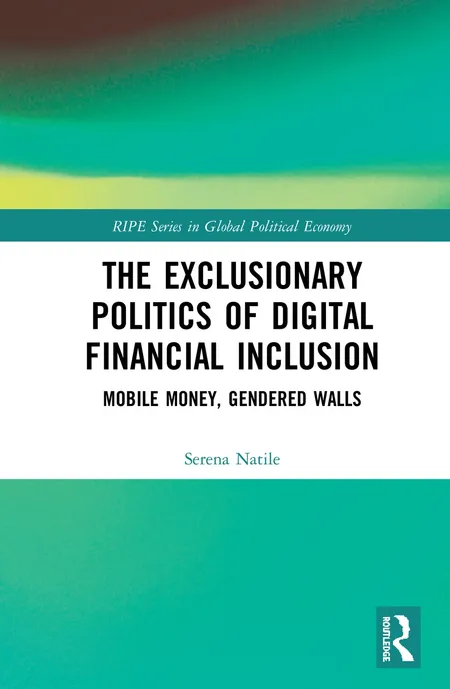Warwick Law School News
Warwick Law School News
The latest updates from our department
Warwick Academic makes Top 10 in Decolonise and Diversify Reading List
The book, published in 2020 by Warwick Law School’s Dr Serena Natile, was recently listed in the D-Econ top ten alternative readings to the mainstream literature on global political economy which forms part of a movement to decolonise and diversify knowledge.
Serena told us, “I am very happy that my book is included in this list, I think these are exactly the academic debates where I wanted to make a contribution. I really admire the work of colleagues at D-Econ and fellow authors mentioned in the list for their commitment to diversify ideas and methodologies in a predominantly white, male, Western field such as economics, and for encouraging scholars and students to engage with difficult debates about asymmetries of power, imperialism, racism and patriarchy embedded in the political-economic-legal system.”
“In the specific case of my book I have contributed to these debates by examining the colonial legacy of women’s financial exclusion as linked to the introduction of property rights, the wage economy and international economic law; and I have linked the rise of digital financial technology to broader debates about development, social entrepreneurship and philanthrocapitalism. My analysis shows how ‘gender equality’ is often instrumentalised and how the governance and regulation of digital finance tend to favour the accumulation of resources instead of their redistribution. In framing these arguments, I have drawn upon the work of postcolonial feminist scholars and authors from the Global South, explored during my fieldwork in Kenya.”
“I think it’s equally important to say that my book wouldn’t have been possible without all the scholars and activists who have allowed me to think about these issues differently and more critically. That’s why I think this list is important.”
 The book ‘The Exclusionary Politics of Digital Financial Inclusion: Mobile Money, Gendered Walls’ is based on the research Serena conducted for her PhD thesis, completed at Kent Law School in December 2016. It examines and critiques the narratives and institutions of digital financial inclusion as a development strategy for gender equality, looking in particular at Kenya’s path-breaking mobile money project M-Pesa.
The book ‘The Exclusionary Politics of Digital Financial Inclusion: Mobile Money, Gendered Walls’ is based on the research Serena conducted for her PhD thesis, completed at Kent Law School in December 2016. It examines and critiques the narratives and institutions of digital financial inclusion as a development strategy for gender equality, looking in particular at Kenya’s path-breaking mobile money project M-Pesa.
Funded via a public-private partnership between DFID and Vodafone, M-Pesa facilitates the transfer of money and access to formal financial services via the mobile phone infrastructure and has grown at a phenomenal rate since its launch in 2007 to reach about 80 per cent of the Kenyan population. For this reason, M-Pesa has been globally acclaimed as a successful development project for the attainment of Sustainable Development Goals (SDGs) such as gender equality, becoming the archetype of digital financial inclusion in the Global South.
Through a socio-legal enquiry that draws on feminist political economy, law & development scholarship and decolonial feminist debate, this book unravels the narratives and institutional arrangements that frame M-Pesa’s success while interrogating the relationship between financial inclusion and gender equality in development discourse. It argues that digital financial inclusion initiatives are premised and regulated according to a logic of opportunity rather than a politics of redistribution, favouring the expansion of the mobile money market in preference to contributing to substantive gender equality via a redistribution of the revenue and funding deriving from its development.
Serena will be contributing to various modules at Warwick, bringing useful and interesting insights from her research. As part of the International Economic Law team she will lecture on trade and sustainable development, the impact of transnational corporations on communities at the margins of the economic system and Fintech and the digitalisation of international economic relations. As part of the Gender & the Law team, she will lecture on her areas of expertise: coloniality, gender and development; gender, sexuality and human rights; reproductive rights and social reproduction and gender & migration. Serena will also contribute to MELS and Constitutional & Administrative law.
Warwick’s Centre for Law, Regulation and Governance of the Global Economy (GLOBE) will be hosting an online book launch next month in collaboration with Bristol Law School.
If you are interested in learning more about the book please register for the event taking place on Friday 27 November 2020 from 1-3pm. Register here: https://www.eventbrite.co.uk/e/online-book-launch-serena-natiles-new-book-tickets-125171069037
Serena’s work forms part of a wider process currently taking place at Warwick Law School. We are actively working towards decolonising our curriculum. Our teaching and research focuses on the impact of structural racism and inequality and we strive to create a student community that is not just inclusive but actively anti-racist. As a Law School that thinks about law in context, it is our responsibility to think critically of racism as structural injustice and explore ways in which the law may be used to change this.
This Black History Month we are collaborating with Essex Law School and Kent Law School to provide a Series of Student Talks on Race and the Law. Find out more: https://warwick.ac.uk/fac/soc/law/news/black-history-2020
